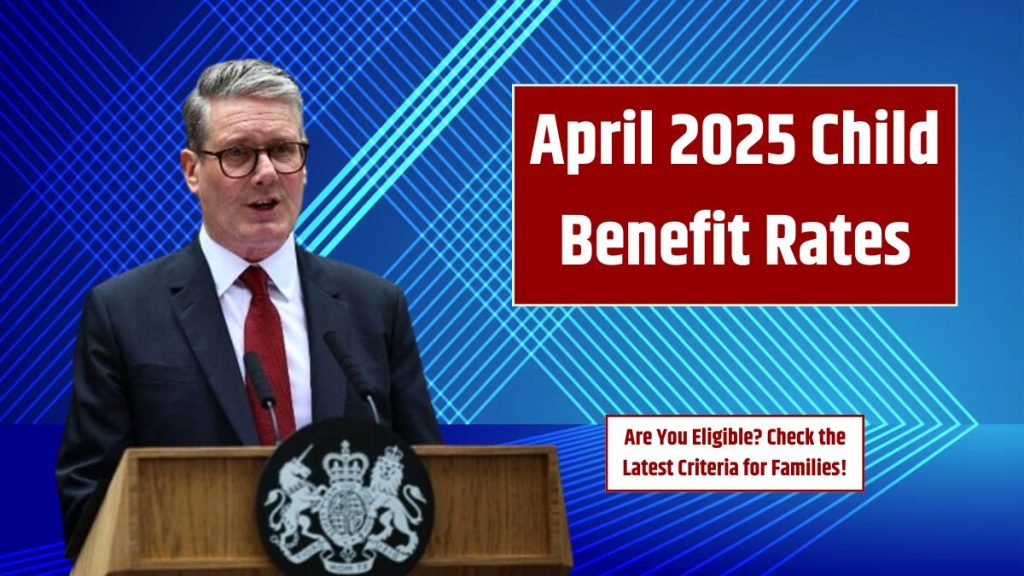Millions of UK residents are set to experience a boost in their welfare payments starting in April 2025. This annual adjustment, tied to inflation and government policies, will impact various benefits, including Universal Credit, State Pension, Child Benefit, and Disability Living Allowance (DLA). Around 19.7 million households, encompassing 39.5 million individuals, will benefit from these changes. Here’s what to expect.
Inflation Adjustment and the Triple Lock System
Welfare payments in the UK are revised yearly in line with the Consumer Prices Index (CPI) inflation rate from the preceding September. For 2025, benefits will rise by 1.7%, corresponding to the CPI rate from September 2024. However, the State Pension will see a larger increase of 4.1%, thanks to the triple lock system. This guarantees that the pension rises by the highest of the inflation rate, wage growth, or 2.5%.
Updates to Key Welfare Payments
Here’s a breakdown of the adjustments across major benefits:
Universal Credit
Universal Credit, replacing six legacy benefits, supports over six million claimants in the UK. The new rates are as follows:
| Claimants | Current Rate | New Rate |
|---|---|---|
| Single under 25 | £311.68 | £316.98 |
| Single 25 or over | £393.45 | £400.14 |
| Joint under 25 | £489.23 | £497.55 |
| Joint one/both 25 or over | £617.60 | £628.10 |
Universal Credit Elements
| Element | Current Rate | New Rate |
|---|---|---|
| First child (before April 2017) | £333.33 | £339.00 |
| Other children | £287.92 | £292.81 |
| Disabled child (lower rate) | £156.11 | £158.76 |
| Disabled child (higher rate) | £487.58 | £495.87 |
| Limited capability (work) | £156.11 | £158.76 |
| Limited capability (work-related) | £416.19 | £423.27 |
| Carer element | £198.31 | £201.68 |
| Childcare (one child) | £1,014.63 | £1,031.88 |
| Childcare (two or more children) | £1,739.37 | £1,768.94 |
Attendance Allowance
Attendance Allowance supports those needing help due to disability or illness.
| Rate | Current | New |
|---|---|---|
| Lower rate | £72.65 | £73.90 |
| Higher rate | £108.55 | £110.40 |
Carer’s Allowance
Carers providing at least 35 hours of weekly care will see their payment rise from £81.90 to £83.30.
Child Benefit
Parents and guardians will receive increased payments:
| Child | Current Rate | New Rate |
|---|---|---|
| First/eldest child | £25.60 | £26.05 |
| Additional child | £16.95 | £17.25 |
Disability Living Allowance (DLA)
| Rate | Current | New |
|---|---|---|
| Highest | £108.55 | £110.40 |
| Middle | £72.65 | £73.90 |
| Lowest | £28.70 | £29.20 |
Mobility Component
| Rate | Current | New |
|---|---|---|
| Higher | £75.75 | £77.05 |
| Lower | £28.70 | £29.20 |
Pension Credit
The Pension Credit minimum guarantee will increase:
| Claimants | Current Rate | New Rate |
|---|---|---|
| Single | £218.15 | £227.10 |
| Couple | £332.95 | £346.60 |
Personal Independence Payment (PIP)
PIP, aiding working-age adults with disabilities, will see the following changes:
| Component | Rate | Current | New |
|---|---|---|---|
| Daily living (lower) | Weekly | £72.65 | £73.90 |
| Daily living (higher) | Weekly | £108.55 | £110.40 |
| Mobility (lower) | Weekly | £28.70 | £29.20 |
| Mobility (higher) | Weekly | £75.75 | £77.05 |
State Pension
The State Pension will see its largest increase under the triple lock system:
| Type | Current Rate | New Rate |
|---|---|---|
| Full new State Pension | £221.20 | £230.25 |
| Full old Basic Pension | £169.50 | £176.45 |
Preparing for the Changes
These adjustments aim to support individuals amid ongoing economic challenges. Eligible recipients are encouraged to review their benefits and budget accordingly to ensure these changes are fully integrated into their financial planning.
Why are welfare payments increasing in 2025?
The annual adjustment reflects the inflation rate from September 2024, ensuring benefits keep pace with rising living costs.
How does the triple lock system work?
The triple lock guarantees that the State Pension increases by the highest of inflation, wage growth, or 2.5%.
Who qualifies for Universal Credit?
Universal Credit is available to individuals on low incomes or those who are unemployed, replacing six legacy benefits.









